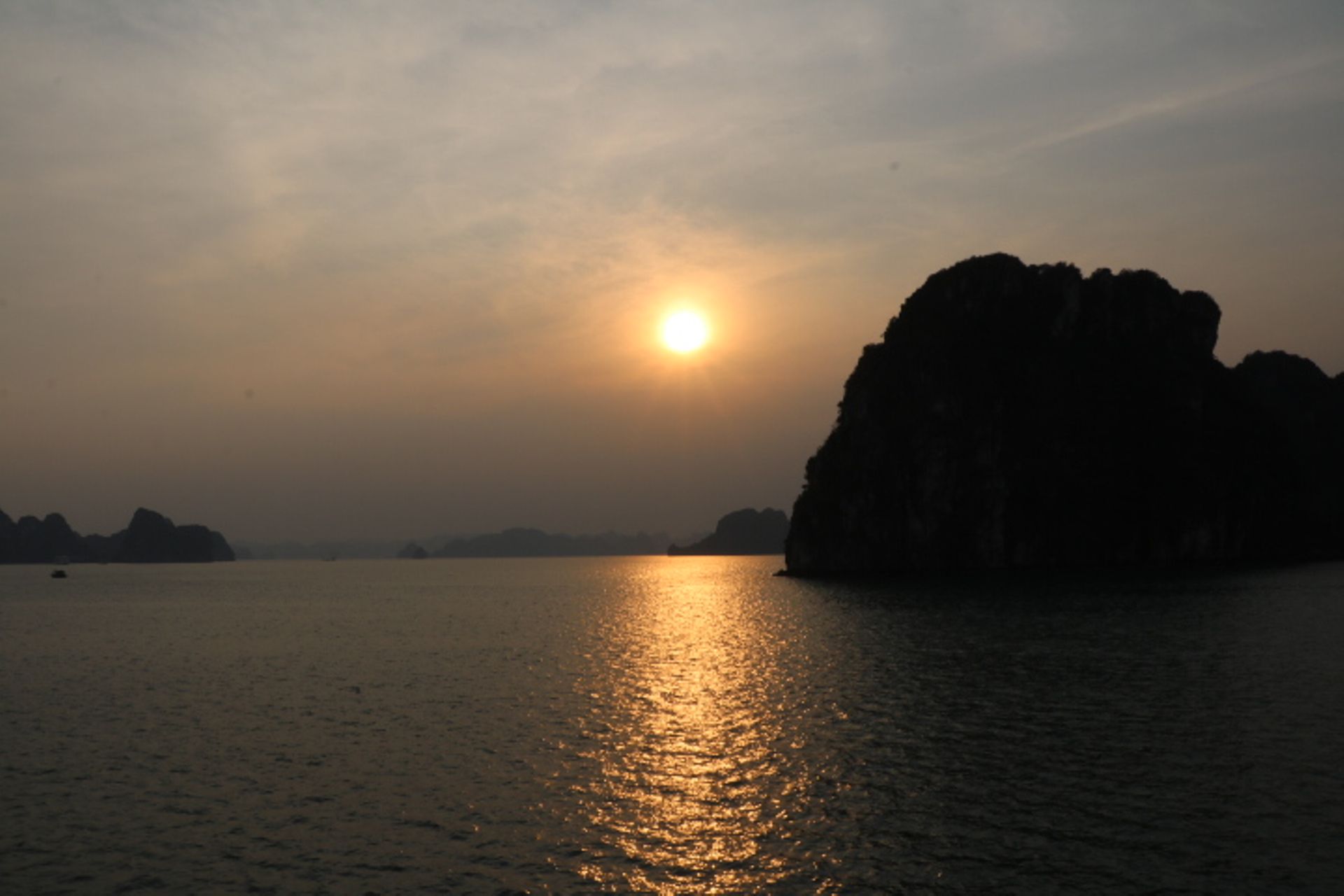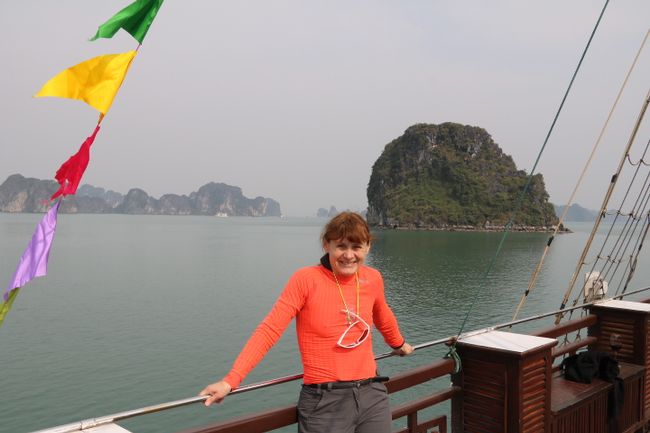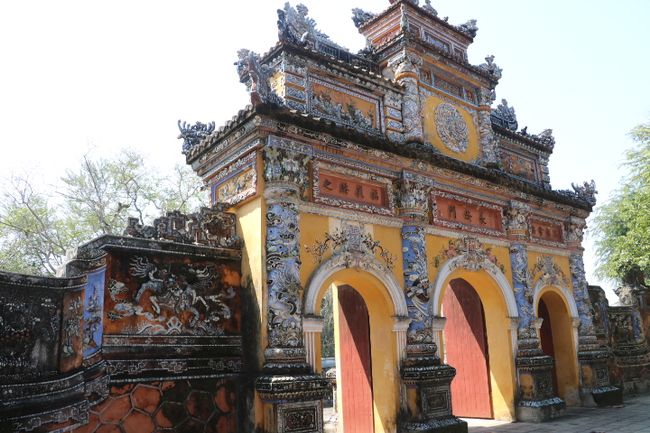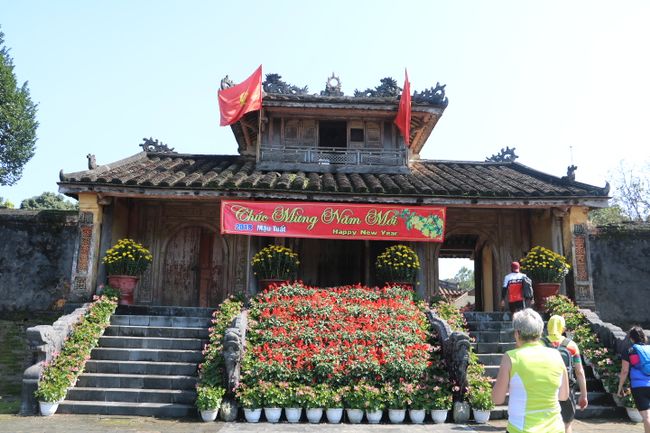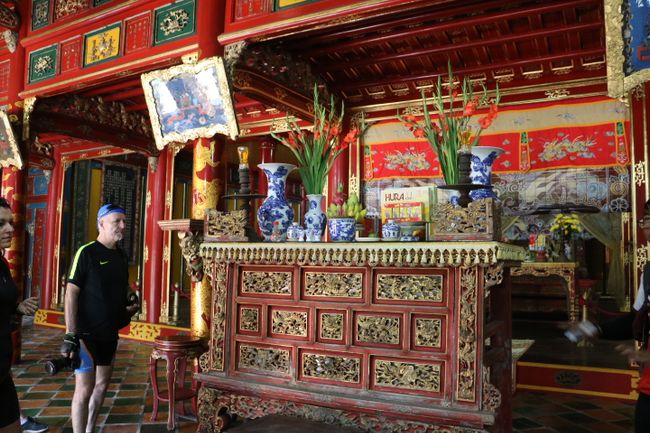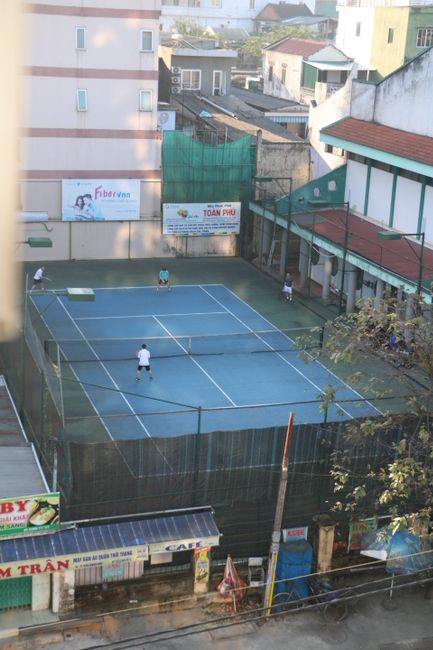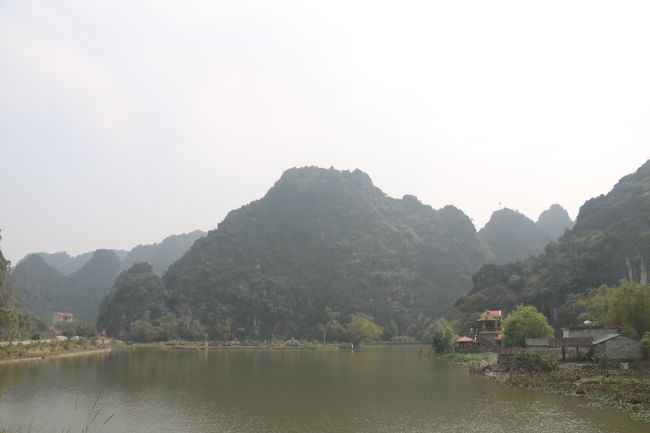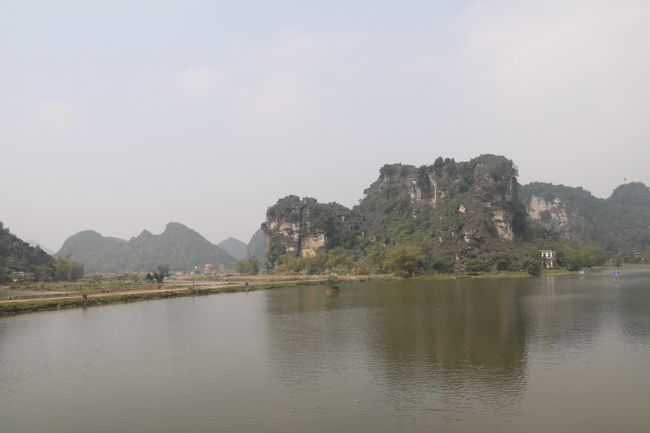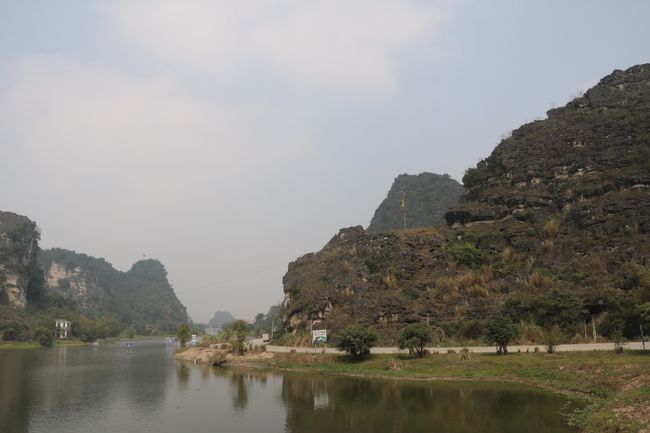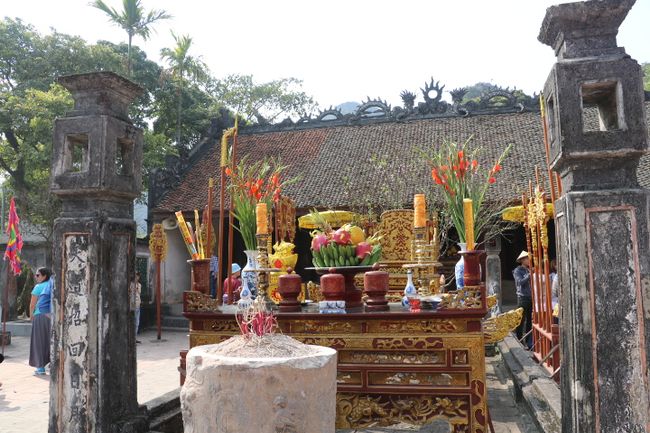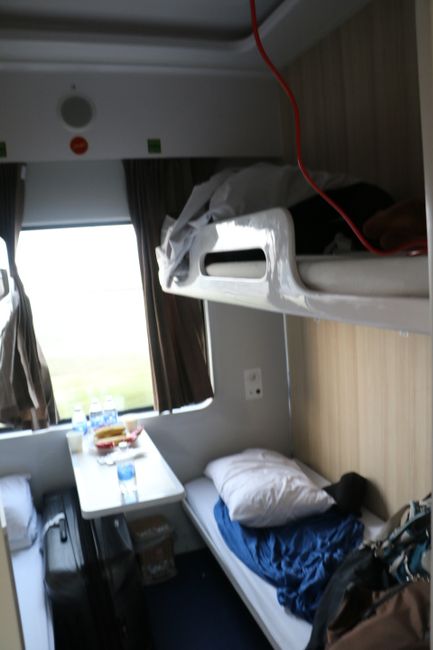Ninh Binh - dry Halong Bay - train journey to Hue
പ്രസിദ്ധീകരിച്ചു: 15.02.2018
വാർത്താക്കുറിപ്പിലേക്ക് സബ്സ്ക്രൈബ് ചെയ്യുക
Wednesday, 14.2.2018 and Thursday, 15.2.2018
The sun is shining today. We take a bus to the outskirts of the city, from where we start our 50 km bike tour. We ride about 15 km on small, mostly unpaved country roads through the pineapple growing area. The fruits can be harvested after 2 years. Then everything has to be plowed and replanted, preferably after a crop rotation. The leaves of the pineapple plants are extremely sharp. One should only walk through the fields with long pants. It must always be checked which fruits can be harvested and which ones still need to ripen.
After 15 km we have our first break. As always, there are plenty of fresh fruits, but also dried ginger and other fruits, nuts, and cookies.
Now we go through rice fields, on small roads, very quiet and picturesque. Then comes the highlight: the dry Halong Bay. Karst mountains that are not in the sea, but on the land. Only it is much warmer and quieter here.
Then we arrive in the town of Hoa Lu, where we say goodbye to the bikes. We unscrew our own pedals, bicycle computer, and saddle. Then there is typical food, but for non-vegetarians there is also goat meat. After the meal we say goodbye to the truck driver and the bike mechanic.
Now we visit the Temple of a Thousand Victories. The Chinese allegedly attacked here 1000 times in vain. They had to give up every time. The temple is quite nice, but the climb up steep stairs to the king's grave on top of the mountain is really beautiful. We learn that the dragon is sacred here, that's why dragons are always depicted in temples. There is also an imaginary creature with a dragon head and a dog's body.
Now we return to the hotel, where we have 3 rooms for 13 people to shower. It's great that we can shower again after cycling and before the train journey. At 6:30 pm we visit a Korean restaurant and the food is unique because there is no rice! We all eat various noodle soups. I have chosen the seafood soup. The dishes are brought to the table still boiling with a lid. A true delight. Definitely the best food on the trip so far. Then there is also a birthday cake for a special occasion. Then we quickly pay and return to the hotel, because we are taken to the train station from where we travel about 500 km by night train to Hue. The same distance could have been covered by plane for the same price, but the train journey on the Reunification Train is an experience we should also try.
The railway line was built during the French occupation. The train runs according to schedule. Everything is punctual. First you see the dining car, then the regular train compartments, and then the sleeping cars. These are new wagons, because the old ones had 6 beds per cabin. Here only 4 people share the small compartment. I go into a compartment with Loc, where two people are already sleeping. It gets really tight with all the luggage. After I'm small, my huge backpack with the remaining luggage goes on the bed. I still have enough space (I'm small). I actually have the impression that I'm constantly awake, but I probably also slept. It rattles immensely and the noises are very loud. In each cabin each traveler receives a bottle of mineral water, cookies, a banana, and a refreshing towel. In the morning, when we have the door of the cabin open to arrive soon, an audacious European enters and takes the portions that the already disembarked passengers did not take with them. But there is someone else with us, just not at the seat right now. Pretty cheeky. If I had realized that earlier, I would have given him a piece of my mind. I think he was a Frenchman. You can't just go into someone else's compartment and help yourself. And the value of these products for a European is peanuts.
After 10 hours we arrive in Hue and are taken to the hotel where our rooms are already ready. We first have breakfast, put on our cycling clothes, and pick up our new bikes. And off we go on our 20 km bike tour. After 3 km we visit the Citadel, the largest royal palace in Vietnam. The 13 emperors of the Nguyen Dynasty lived here, many with a number of concubines. Large parts of the palace were destroyed and rebuilt, some are still preserved, others are ruins. Huge iron tubs are brutal. In these vessels filled with hot oil, the king would throw his enemies alive.
The last king left Vietnam and went to France. After that, the dynasty ended. The mother of the last king did not follow her son to France, but reserved a palace for herself within the citadel.
Then we drive into the countryside and the roads gradually become quieter and more beautiful. In a park, our new companions (bus driver, truck driver, and bike mechanic) have prepared another snack. Totally delicious. The grave of the third king Thieu Tri is also located here, which was kept simple at the king's request – which does not mean that it is not very noble in our eyes with its many gold decorations and beautiful altar.
Afterwards, we cycle back to the city. While we were visiting the grave, the new team even refilled the water bottles on the bikes. Such a luxury. We now have our first lunch in the south and it is a bit different. There is not just plain rice, but it has been mixed with egg. A welcome change. In addition, there is also vegetable soup and fruit for dessert.
Then we return to the hotel where I have a laundry day. Everything should dry here in the warmer climate.
വാർത്താക്കുറിപ്പിലേക്ക് സബ്സ്ക്രൈബ് ചെയ്യുക
ഉത്തരം
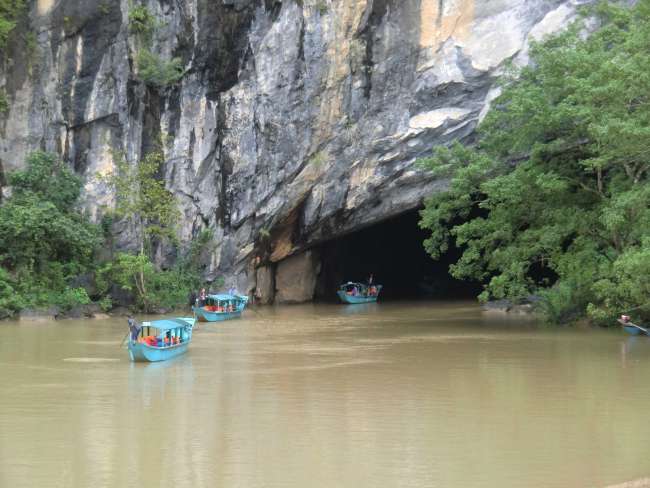
യാത്രാ റിപ്പോർട്ടുകൾ വിയറ്റ്നാം
